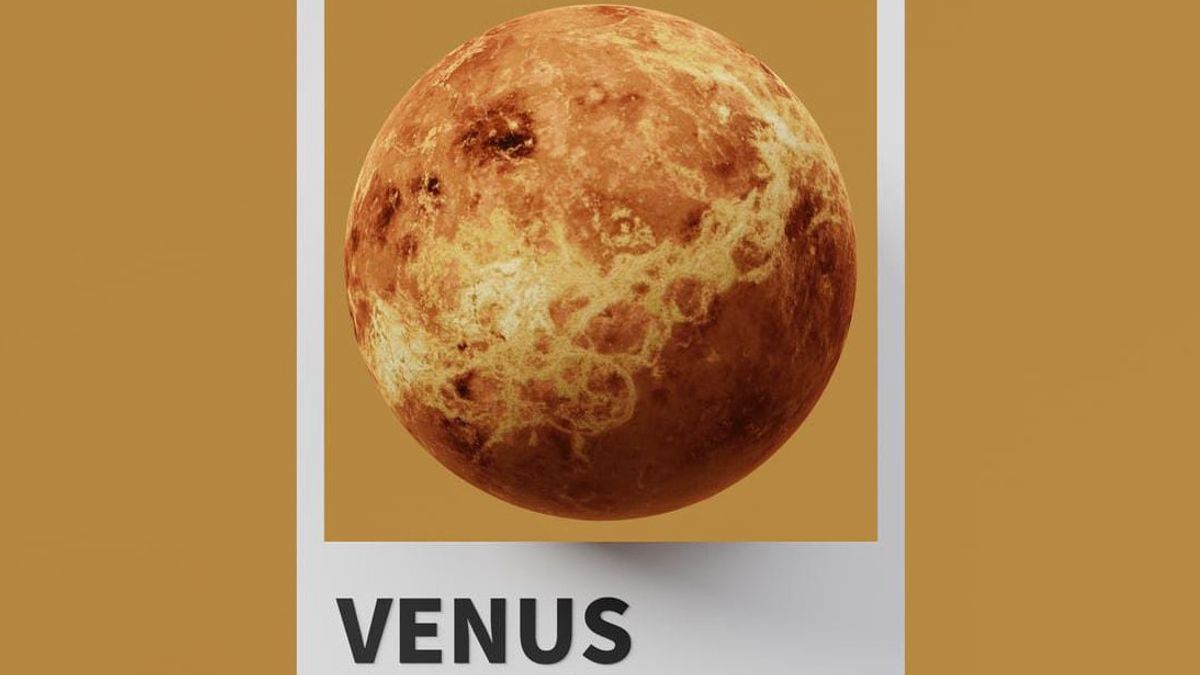JAKARTA - Venus is the second closest planet to the sun after Mercury. Venus is also a neighbor of Earth, just like Mars. But why do experts say it more often than not to move Earthlings to Mars, rather than to Venus? Here's the explanation.
An astrophysicist at The Ohio State University, Paul M. Sutter told Space how ugly Venus is, even though she is known in Greek mythology as the goddess of love and beauty. He even said that the planet Venus is hell.
Why is Venus Called Hell?Starting with the atmosphere on Venus, Sutter says the atmosphere on Venus is worse than the smog in LA. Venus is almost entirely surrounded by a very thick layer of carbon dioxide. In addition, 4% of the planet's atmosphere is nitrogen, which means more than on Earth.
Above the planet Venus, there are clouds made of sulfuric acid. With highly reflective sulfuric acid clouds and other thick atmospheres, less than 3% of the sun's rays reach Venus. Thus, it is difficult to distinguish between day and night.
Despite getting less light, it turns out that the temperature on Venus is so high that it can melt lead. Temperatures on Venus reach above 700°F or 370°C. Even in places in deep valleys, temperatures can reach 750°F (400°C).
Venus also has a strange rotation in the solar system. The first odd thing is that Venus rotates backwards, which means the sun will rise in the West and set in the East. The next oddity is that Venus rotates very slowly, with Venus' rotation of two days taking one year on Earth.
In addition, the air pressure on the surface of Venus is very extreme, which is about 90 times higher than on Earth. That is, the air pressure there is almost the same as the water pressure at a depth of one kilometer under the earth's ocean.
The Planet Venus Was Thought To Be A Substitute For EarthAt first, scientists thought that Venus could be a fun planet. How come? The position of Venus is very close to Earth, and also Venusa is made of material, and the size of the mass is approximately the same as Earth. At that time, Venus is said to be very strong to be a habitable zone.
However, as the sun ages, the habitable zone continues to move outward, and things start to fall apart. The temperature on Venus rose, and the oceans began to evaporate, throwing a lot of water vapor into the atmosphere. This water vapor is very good at capturing heat, which further increases the temperature at the surface and causes the oceans to evaporate even more.
Eventually Venus became a runaway greenhouse with all the water vented into the atmosphere catching arrows as much as possible, and surface temperatures that continued to skyrocket. This is what causes the temperature on Venus to be very hot. Sutter said it may take more than 100 years to discover the potential for life on Venus.
The English, Chinese, Japanese, Arabic, and French versions are automatically generated by the AI. So there may still be inaccuracies in translating, please always see Indonesian as our main language. (system supported by DigitalSiber.id)









